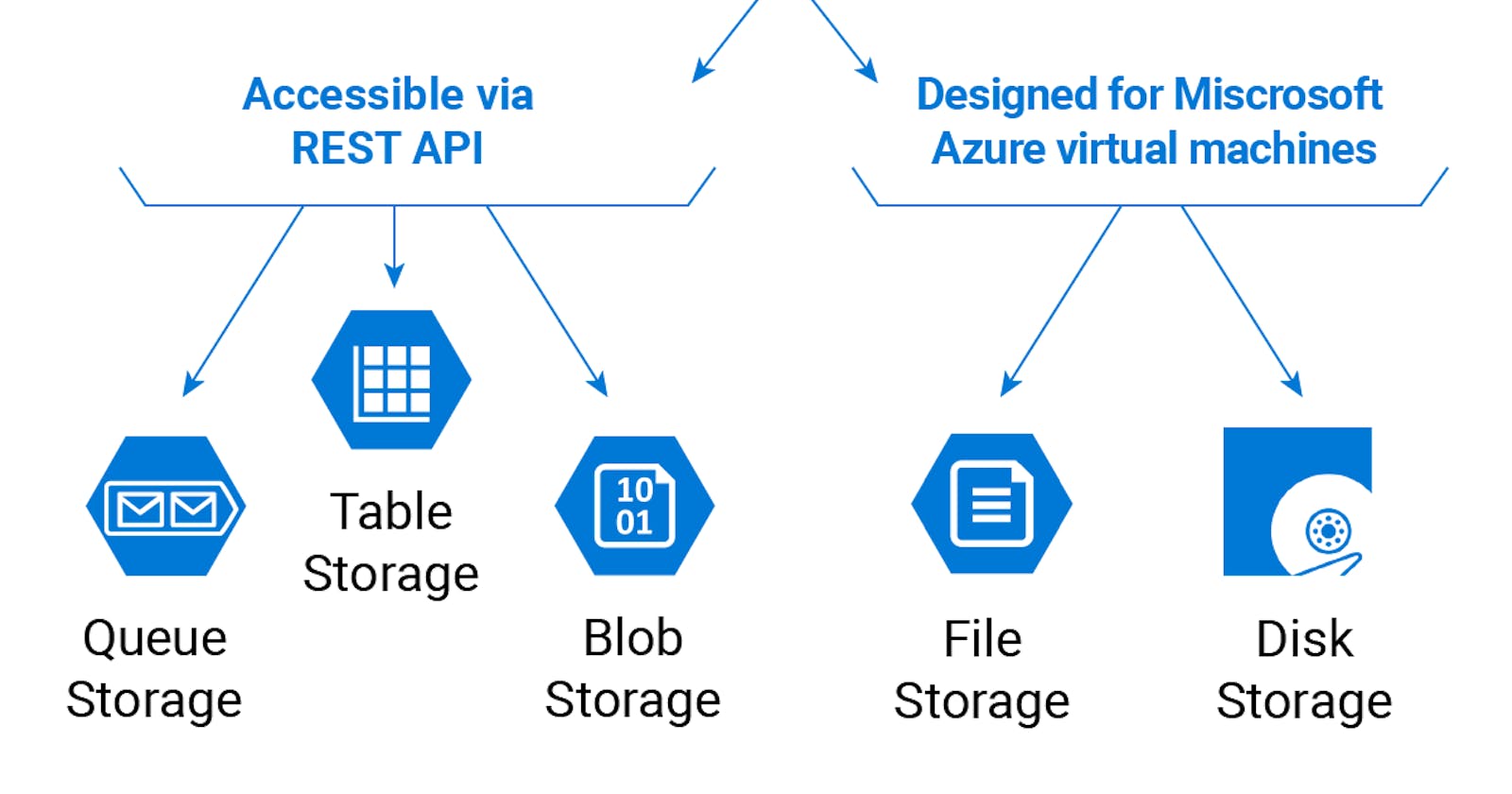Exploring the power of Azure Storage: A comprehensive guide to Microsoft's cloud storage solution
Azure Storage is a cloud-based service provided by Microsoft that allows users to store, manage, and access large amounts of data. It provides several different types of storage options, including blobs, files, queues, and tables, each of which is optimized for specific types of data and use cases.
Blob storage is used for unstructured data such as images, videos, and audio files, while file storage is used for shared file access, and queues and tables are used for messaging and structured data storage, respectively.
Azure Storage is a Microsoft cloud storage solution that offers a variety of services for storing and managing data in the cloud. These services include:
Azure Blob Storage: a service for storing unstructured data such as images, videos, and documents.
Azure File Storage: a service for storing and managing files in the cloud, which can be accessed via the SMB protocol.
Azure Queue Storage: a service for storing and managing message queues in the cloud.
Azure Table Storage: a service for storing and managing structured data in the cloud, which can be accessed via the OData protocol.
Azure Storage provides a scalable, highly available, and secure platform for storing and managing data in the cloud. It can be used to store data for a wide range of applications, including web and mobile apps, IoT devices, and big data analytics. Additionally, Azure Storage is integrated with other Azure services, such as Azure Virtual Machines, Azure Databases, and Azure Functions, making it easy to build powerful, end-to-end solutions in the cloud.
Overall, Azure Storage is a powerful, flexible, and cost-effective cloud storage solution that can be used to store and manage a wide variety of data types and sizes.
